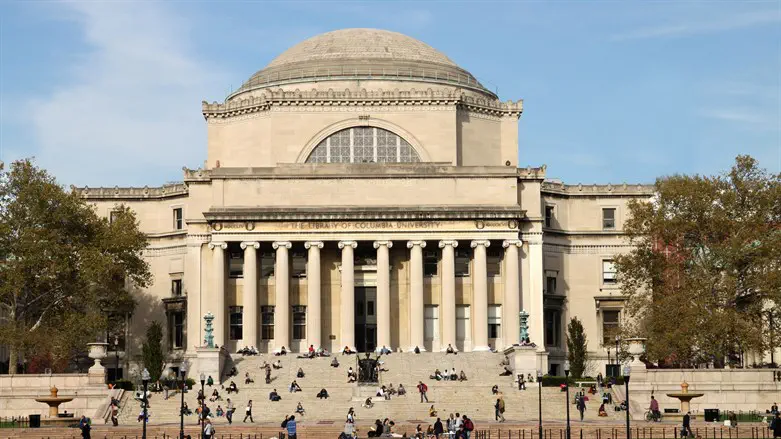
Columbia University has identified two individuals from an “affiliated institution” who took part in the disruption of a course on the history of modern Israel taught by an Israeli professor last Tuesday, the Columbia Daily Spectator reported on Monday, citing a statement released by the university.
The individuals, who are not Columbia students, have been barred from entering the campus and referred to their “home institution for further investigation and discipline,” the statement said.
Columbia’s affiliated institutions include Barnard College, Union Theological Seminary, and Teachers College.
This announcement follows an earlier development last Thursday, when the University identified and suspended a student involved in the incident, pending a full investigation and disciplinary process. The broader investigation into the disruption remains ongoing.
The disruption occurred during the first session of the course, taught by history lecturer Avi Shilon, on the first day of Columbia’s spring semester.
Protesters entered the classroom and distributed flyers bearing inflammatory images and messages. One flyer depicted a boot stomping on the Star of David alongside the words “Crush Zionism.”
Another showed an individual in a keffiyeh holding a burning Israeli flag, with the phrase “Burn Zionism to the ground,” according to video and photographs shared by the Columbia Jewish & Israeli Students account on X.
Interim University President Katrina Armstrong, Barnard President Laura Rosenbury, and Columbia College Dean Josef Sorett condemned the disruption in public statements.
Armstrong, in a statement released Wednesday, emphasized that the University had expedited its investigation and adjusted security measures, including requiring Columbia ID swipe access for buildings on the Morningside campus.
The same day as the course was disrupted, hundreds of anti-Israel demonstrators rallied outside Columbia University, chanting slogans like “We will honor all our martyrs,” “Smash the settler Zionist state,” and “Intifada people’s war” to the beat of a snare drum.
On campus, a smaller group of activists chanted “Long live the intifada” near Butler Library before marching off campus to join the larger rally.
Last week’s disruptions are the latest in a series of incidents at Columbia related to the Israel-Hamas conflict in Gaza. Columbia has come under increased scrutiny over the rise in antisemitism on campus since the Hamas massacre in Israel on October 7, 2023.
Pro-Palestinian Arab demonstrators at Columbia set up dozens of tents in April of last year, demanding that the university divest from its Israeli assets. The university administration called in police to dismantle the encampments.
On April 30, at the request of university leaders, hundreds of officers with the New York Police Department stormed onto campus, gaining access to the building through a second-story window and making dozens of arrests of the pro-Palestinian Arab demonstrators who had taken over Hamilton Hall.
Before the anti-Israel encampment on campus, the Chabad rabbi of Columbia University and a group of Jewish students were forced to leave the university campus for their own safety during a pro-Hamas demonstration.
In August, three Columbia University deans resigned from the school, after it was discovered that they had exchanged “very troubling” texts that “disturbingly touched on ancient antisemitic tropes”.
Later that month, Columbia University President Dr. Minouche Shafik announced her resignation, following months of criticism for her handling of campus antisemitism.
In September, on the first day of classes, dozens of masked anti-Israel protesters gathered at the entrance to Columbia and at Barnard College.
